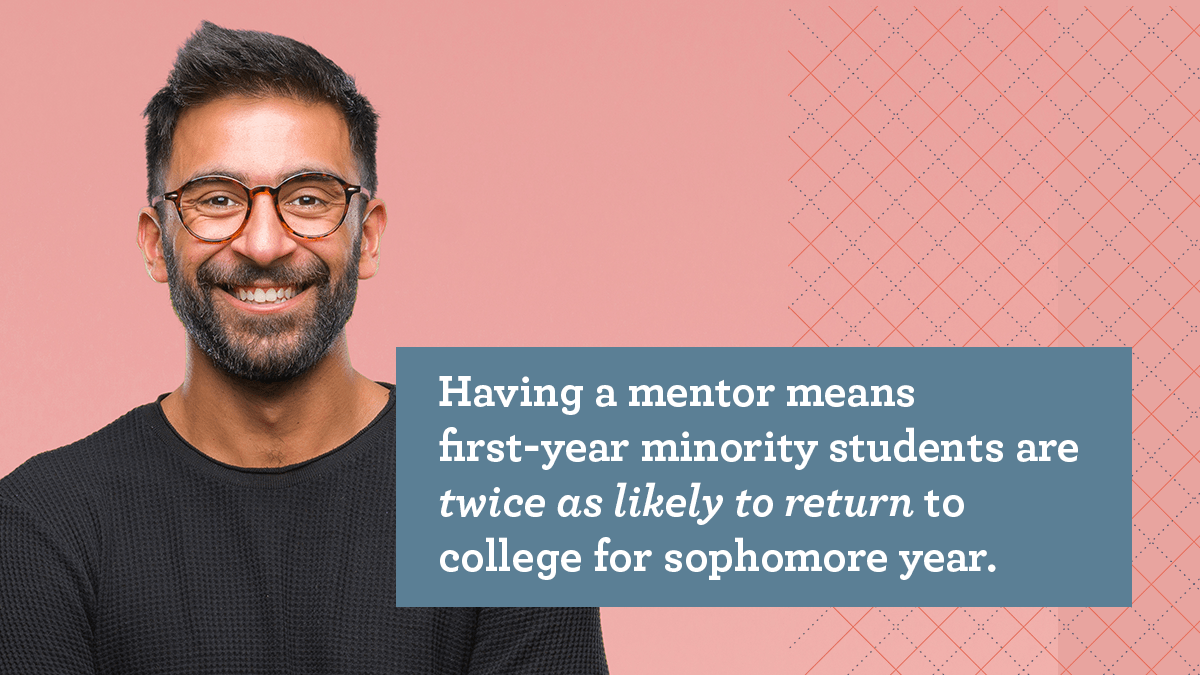
Scholarships Open Up a World of Networking Opportunities
While you may come to college as a part of many networks, “networking” requires an intentional effort to meet and connect with those who share your interests, values and goals. The result? Connections, advice, mentorship and, eventually, job opportunities.
Filed In
- Beyond the Scholarship
Topics
- Networking
- Tips
In the uncertain and changing world of higher education, one thing remains true year after year: a college education means a higher salary and a lower risk of unemployment. College prepares students for those better, higher-paying jobs in a number of ways: teaching specific skills; fostering critical thinking; and introducing high school graduates to the work world. But there’s another benefit that’s often overlooked when discussing the value of college—it’s the first chance many students have for professional networking opportunities.
The Importance of Networking in College
If you’re a student, you were networking long before getting to college. From your first group of pals in elementary school to your Instagram friends to your high school extracurricular groups, you’ve always been a part of social networks. In college, you’ll do the same thing—friends, neighbors, classmates and colleagues will all become part of the fabric of daily life.
But college also presents the opportunity to start building more formal networks.
What’s the difference? A recent article from Capture Higher Ed provides some good insight:
One benefit to a college degree that may not be readily apparent is that of social capital. In their 2001 book “In Good Company: How Social Capital Makes Organizations Work,” authors Dan Cohen and Laurence Prusak define “social capital” as a matter of connection.
One of the essential cogs of social capital is the network. We often talk, in the workplace and certainly on college campuses, of “community,” but whereas community exists even before we arrive in the office or in the dorms, the network “requires some investment in time, energy, and emotion. It includes the strong potential for reciprocity.” We can join a community, but we actively engage in networking.
In other words, while you may come to college as a part of many networks, “networking” requires an intentional effort to meet and connect with those who share your interests, values and goals. The result? Connections, advice, mentorship and, eventually, job opportunities.
How Do I Start Networking?
Whether you’re a first-generation freshman or a senior getting ready to graduate, networking can be daunting. Fortunately, there’s plenty of good advice (and good advisers) to help. This article from Penn State’s Career Services department outlines some easy starting points with major benefits:
-
- Get active on LinkedIn and connect with students and alumni at your school
-
- Find your college’s online networking resources
-
- Maintain relationships with past and current employers/coworkers
-
- Reach out to upperclassmen and grad students in your major
-
- Join your alumni association with a student membership and attend events
In addition, your department is likely to host job fairs, guest lectures from local professionals and other networking events. Make time to attend these and get to know the presenters; a positive first impression will stick with them, and will mean you’re already familiar when you go out looking for an advisor, a mentor or a potential employer.
This kind of intentional network-building can pay off before you even leave campus. As one student from Penn State said, “Networking and building connections within my part-time [library] position … has been very helpful for me. I got my first job fall semester of my sophomore year and by the following summer I already had a second job in a different department of the library. My supervisor continues to send student employees any job openings she sees in different departments as well as available scholarships within the library I wouldn’t otherwise be aware of.”
The Unique Networking Value of Scholarships
Scholarships can help you with networking in many ways—some obvious, others less so. The most obvious one is by helping make college possible in the first place. But that’s only the beginning.
An often-overlooked benefit of scholarships is that they can help you balance work and school more evenly. If a scholarship is covering all or part of your tuition, it means you need to work fewer hours to make ends meet. And that means more time for academics, activities—and networking opportunities.
After all, if you have to sprint from class right to an eight-hour shift at work, you’re likely to miss out on that lecture, job fair or alumni mixer. But with more free time, you’re able to take advantage of more benefits that college has to offer.
Scholarships also provide a unique network of their own: recipient and alumni communities. You, and the others who have earned the same scholarship over the years, share something powerful in common. Just like you, those past and current recipients have big goals, and have often faced and overcome similar challenges. They’re valuable people to know, and to add to your network!
In some cases, you may need to do a little digging to find your fellow recipients, either by Googling or by contacting the sponsoring organization. Fortunately, though, more and more scholarship providers are recognizing the value of these connections, and providing built-in networks for recipients. Here at Scholarship America, all of our Dream Award Scholars have opportunities to meet virtually and/or in person.
The Coca-Cola Scholars Foundation has also built an extremely valuable networking tool for their award recipients, based on their tagline: “Once a Coke Scholar, always a Coke Scholar.” The Coke Scholars Connect tool allows more than 6,000
of the company’s current and past scholars to meet each other, discover mentors and connections in their field, share news and advice and much more.
Whether your scholarship is from a big national program like Coke Scholars, or from a local sponsor in your hometown, you and your fellow recipients have done something special—and have something important in common. As you start exploring ways to network in college, your scholarship community is a perfect first step.
Related Articles
Browse All
Our team is here to help you achieve your goals and build your custom scholarship program.

